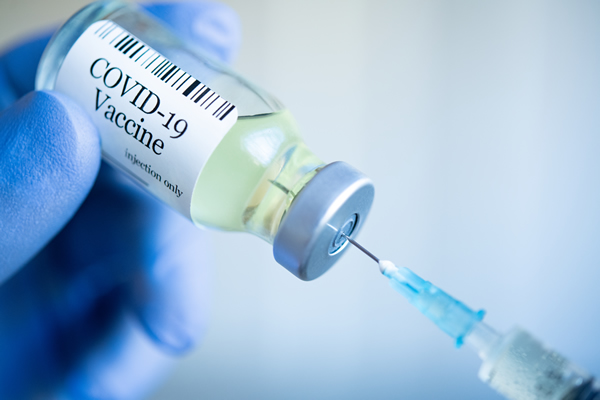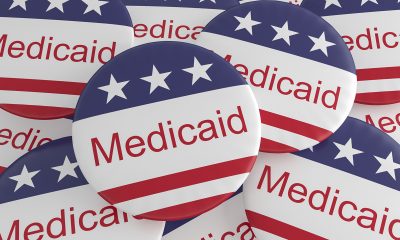Opinions
LGBTQIA disparities amid COVID-19
Pandemic has disproportionately impacted vulnerable groups

The COVID-19 pandemic has highlighted the importance of meeting the needs of diverse communities and minorities when facing emergencies such as COVID-19. But more importantly, it highlighted their vulnerability, since they are considered much more prone populations. COVID-19 has made it even more evident the disproportionate burden vulnerable populations bear and the weakness of our health system.
Minorities who are members of racial/ethnic groups are disproportionately affected and often exposed to higher illness rates and have substantially higher mortality and morbidity rates than the general population. For example, people vulnerable to HIV infection usually belong to socially, economically disadvantaged and discriminated groups. The Human Rights Campaign presented an investigative report on how the community faces unique challenges due to their economic situations and access to healthcare. According to HRC, LGBTQIA Americans are more likely than the general population to live in poverty and lack access to adequate health care, paid sick leave and basic needs during the pandemic. The Centers for Disease Control and Prevention states in one of its reports that the LGBTQIA community experiences stigma and discrimination in their lives that “… can increase vulnerabilities to illness and limit the means to achieving optimal health and well-being…” For example, discrimination and violence against LGBTQIA persons have been associated with high rates of psychiatric disorders, substance abuse, suicide and have long-lasting effects on the individuals. Furthermore, LGBTQIA mental health and personal safety are also affected when they go through the process of personal, family and social acceptance of their sexual orientation, gender identity and gender expression.
According to the Williams Institute, the leading research center on rights based on sexual orientation and gender identity, one in 10 LGBTQIA people is unemployed and more likely to live in poverty than heterosexual people, so they cannot always pay for proper medical care or preventive health measures. Also, approximately one in five LGBTQ + adults in the United States (22 percent) lives below the poverty line, compared to an estimated 16 percent poverty rate among heterosexuals. This data is much worse when we look closely at the trans population with 29 percent and LGBTQIA Latinos with 45 percent. These disparities are even more evident when we see that 17 percent of LGBTQIA adults do not have any medical health coverage compared to the 12 percent of the heterosexual population. That 17 percent increases with the LGBTQIA Black adults with 23 percent, trans adults with 22 percent, and trans Black adults with 32 percent who do not have any health coverage, compared to 12 percent of the heterosexual population that does not possess health coverage. The Office of Disease Prevention and Health Promotion statistics reflect that the LGBTQIA community is more likely to attempt suicide, be overweight or obese, have mental health problems, and less likely to receive cancer treatment.
According to several health organizations led by the National LGBT Cancer Network, the LGBTQIA population still faces great social and economic disparities compared to the heterosexual community, so they are more likely to get infected by COVID-19. The report summarizes how COVID-19 negatively affects the lives and livelihoods of the LGBTQIA community at disproportionate levels. The older generations of LGBTQIA encounter additional health barriers in the face of COVID-19 due to isolation, discrimination in the provision of services, and the lack of competent social services. The LGBTQIA community uses tobacco at rates that are 50 percent higher than the general population, and COVID-19 is a respiratory illness that has proven particularly harmful to smokers. In addition, the LGBTQIA population has higher rates of HIV and cancer, which means a more significant number may have compromised immune systems, leaving us more vulnerable to COVID-19 infections. LGBTQIA communities also face additional risks related to conditions that are often associated with complications from COVID-19. One in five LGBTQIA adults aged 50 and above has diabetes, a factor that raises the risk of complications for individuals diagnosed with COVID-19.
A Kaiser Family Foundation research finds that a larger share of LGBTQIA adults has experienced COVID-19 era job loss than heterosexuals adults (56 percent vs. 44 percent). Furthermore, the limited anti-discrimination protections from the LGBTQIA community also make them more vulnerable to joblessness due to an economic downturn resulting from COVID-19’s spread. Since February 2020, 56 percent of LGBTQIA people report that they or another adult in their household have lost a job, been placed on furloughs, or had their income or hours reduced because of the coronavirus outbreak, compared to 44 percent of non-LGBTQIA people.
In addition, recent data show that LGBTQIA respondents were more likely than non-LGBTQIA respondents to be laid off (12.4 percent vs. 7.8 percent) or furloughed from their jobs (14.1 percent vs. 9.7 percent), report problems affording essential household goods (23.5 percent vs. 16.8 percent), and report having problems paying their rent or mortgage (19.9 percent v. 11.7 percent). The research also shows that three-fourths of LGBTQIA people (74 percent) say worry and stress from the pandemic have had a negative impact on their mental health, compared to 49 percent of those, not LGBTQIA. A recent study from the William Institute also found that LGBTQIA people of color were twice as likely as white non-LGBTQIA people to test positive for COVID-19. According to the Williams Institute, the Coronavirus Aid, Relief, and Economic Security Act (CARES Act) represented a direct benefit for the LGBTQIA community amid the pandemic. However, LGBT people have still experienced the COVID-19 pandemic differently than heterosexuals, including being harder hit in some areas. The challenges presented by COVID-19 have exacerbated the stigma and discrimination to access to healthcare, social services, and basic legal protections for the LGBTQIA community. It is not the first time the LGBTQIA confronts the stigma and discrimination amid a pandemic. Since the HIV/AIDS pandemic from the 80s until now, the LGBTQIA community has developed an extraordinary resilience over decades, and pushing back against stigma and making claims for basic human dignity and equality
The World Health Organization recognizes that “vulnerable and marginalized groups in societies often have to bear an excessive share of health problems and are less likely to enjoy the right to health…” For this reason, the WHO recognizes the need for more aggressive regulations and laws that promote equality in services for these vulnerable groups to eliminate those current statutes that aggravate marginalization and hinder gradually, and even more so, access to health services, prevention, and care. National policies and state regulations must address the needs of LGBTQIA populations, with particular attention to black LGBTQIA and the absence of standardized protections against discrimination by healthcare providers. Although there have been substantial advances for the LGBTQIA population over the last decade, legal protections remain uneven, including those jurisdictions that do not expressly prohibit discrimination based on sexual orientation, gender identity, or/and gender expression. Eliminating LGBTQIA health disparities and enhancing efforts to improve their health are necessary to reduce disparities and increase longevity. Furthermore, under the context of COVID-19, researchers have found that the intersection of race with sexual orientation and gender identity is essential to understand pandemic’s impact. For example, data collection efforts related to COVID-19 must immediately add sexual orientation and gender identity questions. Collecting sexual orientation and gender identity data will improve knowledge about disparities from sexual minorities, enhance cultural competence among health providers, help implement anti-bullying policies, and reduce suicide and homelessness among youth, among others.
Opinions
An undeclared war of distraction by the felon
Will Trump claim a national emergency to undermine midterms?

The president of the United States in his rambling speech about our attack on Iran, recorded during a campaign trip, said, “The Iranian regime seeks to kill. The lives of courageous American heroes may be lost and we may have casualties — that often happens in war — but we’re doing this not for now. We’re doing this for the future, and it is a noble mission.”
Well, the United States has not declared war on Iran, only Congress can do that, not the president. As I write this, the felon has yet to make a live speech to the American people about what he is doing, and Americans have already lost their lives. He is weekending as he usually does at Mar-a-Lago. I wonder if he has the balls to head out to the golf course while American lives continue to be at stake.
This operation is clearly the felon’s way of distracting the people of the United States from his failed domestic policies. From rising food prices, rents, and health insurance. From the loss of manufacturing jobs, as reported in November ”manufacturing shed another 6,000 jobs in September, for a total loss of 58,000 since April.” Had he not acted on Iran now every news outlet in the nation would have reported on the Epstein scandal with the release of the depositions, video and transcripts, of former Secretary of State Hillary Clinton and former President Bill Clinton, in front of the Congressional Oversight Committee.
Even more frightening is this may be his way of preparing to claim a national emergency to undermine the midterm elections, which he is clearly on target to lose, now that his Save America Act has been defeated in Congress.
Americans must ask themselves how long they will put up with this warmonger, racist, sexist, lying, homophobic, SOB, who cares not a whit for them, but only for himself, and his rich colleagues, taking as much grift as they all can, while he is president.
None of this is to say we shouldn’t put constraints on Iran, work to see they never have a nuclear bomb, and limit their production of missiles. We were working toward the goal of stopping them from having a nuclear bomb when the felon, in his first term, pulled us out of the agreement to move forward on that. Today, he has sidelined the State Department, and his Secretary of State, Marco Rubio, in negotiations, and has relied on his son-in-law, Jared Kushner, and Steve Witkoff. The attack was commenced while negotiations were underway. At the end of last week it was reported, Oman’s Foreign Minister Badr Al-Busaidi, who mediated the talks in Geneva, said there had been “significant progress in the negotiation.” Al-Busaidi added, “Technical-level talks would continue next week in Vienna, the home of the International Atomic Energy Agency.” The United Nations’ atomic watchdog likely would be critical in any deal.
So clearly this is all about what the two negotiators, who have sidelined the State Department, Kushner and Witkoff, secretly reported to the felon. My guess is some progress was being made, clearly it was not what the president wanted. So, what ruled was his immediate need for a distraction after the failure of his State of the Union address to make any impact on his sagging poll numbers.
I have written often of the alternate universe Trump has us living in. I am just waiting for his MAGA cult to react to this. Will they still blindly follow everything he says, or will the Laura Loomers of the world finally say, “screw this, take care of us at home, do what you promised to make our lives better”. The first MAGA to say this was Marjorie Taylor Greene. Then Tucker Carlson added his slam against the felon. His PR flack, Karoline Leavitt, is getting confused by all the lies, recently saying “things are better than they were last year.” Clearly forgetting last year was 2025, and the felon was president for all except for 20 days of it, so is responsible for last year.
I am an optimist and believe our democracy will survive him, and his fascist cohorts’ blatant attacks. We won a revolution against one king, and survived a civil war, becoming even stronger as a united nation. We helped Europe defeat Hitler. I believe Sen. Mark Kelly (D-Ariz.) when he says the military will reject illegal orders. Orders that ask them to act against their fellow countrymen and women. I believe the American people will come to their senses before it’s too late. They will finally reject the POS in the White House, and the sycophants, and fascists, surrounding him in time to reclaim our nation for all the people.
Peter Rosenstein is a longtime LGBTQ rights and Democratic Party activist.

I recently lost my dog, Argo.
He was a pit bull, big, sweet, endlessly cuddly, and for 15 years he was my constant. The kind of presence you stop consciously noticing until they’re gone and the quiet hits you all at once. Pit bulls have a reputation. Argo never got the memo. He just loved people, completely and without condition, from the moment he met them until his last day.
I wasn’t prepared for what happened next.
My phone filled up. Instagram lit up. Texts came in from people I hadn’t heard from in months, in some cases years. Hugs from neighbors. Messages from colleagues. Condolences from people I’d lost touch with, some through nothing more than the slow drift of busy lives in a busy city, and some honestly through small tiffs and misunderstandings that neither of us ever bothered to resolve.
And sitting with all of that love pouring in, I found myself asking a question I wasn’t expecting: Why has it taken this long?
We do this in D.C. We get caught in our heads, our calendars, our ambitions. We let weeks turn into months. We let a small misunderstanding calcify into distance because nobody wants to be the first one to reach out, nobody wants to seem like they need something. We perform resilience so well that sometimes the people who care about us most don’t know we need them.
And then something breaks open, a loss, a moment of real vulnerability, and suddenly people show up. And you realize the connection was always there. It just needed permission.
Argo gave people permission. Even in dying, he did what he always did when he was alive. He brought people together.
I’ll be honest with you about where I’ve been lately. As I’ve climbed the entrepreneurial ladder, something quietly shifted. People stopped seeing Gerard. They started seeing a title, a resource, someone who could give them something or who owed them something. A character. Not a person. And when most of your day is spent inside other people’s problems and crises, you can start to feel it, a slow creep of cynicism that you don’t even notice until one day you realize you’ve gone numb.
And I’m not alone in that. Look around. We just watched innocent people die while those in power looked us in the face and called it something else. We watched people erupt over a 10-minute halftime performance like it was the greatest threat to our country. Everywhere you look there is something designed to make you angry, or exhausted, or both. Anger and numbness have become survival strategies. I understand it. I’ve lived it.
But here is what Argo reminded me.
The world is not what the loudest voices say it is. The world is what shows up when something real happens. And what showed up for me, after losing my sweet boy, was people. Caring, loving, present people who put down whatever they were doing to reach out to a friend. Some of them I hadn’t spoken to in too long. Some of them I’d had friction with. All of them showed up anyway.
That is the world. That is what it actually is underneath all the noise.
I think we’ve forgotten that. Or maybe we haven’t forgotten it, maybe we’re just so tired and overstimulated and battle-worn that we’ve stopped letting ourselves feel it. Because feeling it requires vulnerability, and vulnerability feels dangerous right now. It’s easier to scroll. It’s easier to stay mad. It’s easier to keep a wall up and call it wisdom.
Argo spent 15 years showing me a different way. He never met a stranger. He never held a grudge. He never saved his love for people who deserved it on paper. He just gave it, freely, every single time. Not a reward. Not a transaction. Just the most natural thing in the world.
Grief burns off everything that isn’t essential and leaves only what matters. What’s left for me is this: the world is full of good people. You may be surrounded by more of them than you know. And if you’ve gone numb, or angry, or so busy surviving that you’ve stopped connecting, I want you to know that the feeling can come back. It came back for me.
Reach out to someone today. Close a distance you’ve let grow. Tell someone they matter. Not because everything is perfect, but because connection is how we survive when it isn’t. Living disconnected, mad and closed off isn’t living at all. It’s a slower kind of dying.
Death came to teach me how to live. I hope this saves you some time.
Gerard Burley, also known as Coach G, is founder and CEO of Sweat DC.
Opinions
Why innovation matters for Black health
Making healthcare more affordable is vitally important

Black Americans are more likely than Americans of other races to live with chronic conditions like HIV. They also disproportionately struggle to afford the often expensive treatments needed to manage those conditions.
So it’s hardly surprising that Black voters care about politicians’ proposals to bring down healthcare costs more than any other group.
Most of those proposals — from leaders in both parties — are well-intentioned. But they are not all equally beneficial. Recent efforts to impose price controls on prescription drugs threaten to harm the very patients they are meant to help.
Consider former President Biden’s signature Inflation Reduction Act, which gave Medicare the power to set prices on brand-name medicines for chronic conditions like diabetes, autoimmune disease, or cancer — all diseases that Black patients disproportionately struggle with.
These price controls promise short-term cost savings. But they threaten to erase the much larger savings that patients with chronic illness would otherwise see over their lifetimes. That’s because price controls disincentivize companies from developing new medicines to compete against existing popular treatments for serious conditions.
Consider HIV. According to the CDC, more than 1.2 million people in the United States are living with HIV, and roughly 31,000 new infections still occur each year. In the 1980s, these diagnoses would have been a death sentence. Today, they represent a manageable chronic illness — a direct result of decades of sustained research and investment in antiretroviral development, long-acting injectables, and prevention tools like PrEP.
HIV treatments are cheaper and more accessible now than ever. That’s not because of government intervention, but because of the price wars that resulted as companies introduced competing therapies and battled for market share.
In fact, had the government prematurely intervened, those competing treatments might never have reached patients, who would still be stuck paying vastly higher prices.
That is precisely the risk our leaders are now taking. Many companies are already scaling back research because of the IRA’s price controls. Since the law’s passage in 2022, biotech firms have canceled at least 55 research programs.
That is especially dangerous for the Black community. Black patients have historically been overlooked by the research establishment, from the underrepresentation of Black participants in clinical trials to underinvestment in conditions like sickle cell disease that disproportionately affect Black patients. If companies are forced to scale back research, it is likely that treatments for smaller and more marginalized patient populations will face the greatest risks of being cut.
The Trump administration, meanwhile, continues to push for its so-called “Most Favored Nation” policy that would tie U.S. drug prices to the lower prices arbitrarily set by foreign governments.
The consequences could be severe. “Most Favored Nation” pricing would dramatically reduce companies’ revenues on both new and existing medicines, decimating resources for future research and development. Researchers project that, if imposed on Medicare and Medicaid alone, such policies could cut research spending nearly in half, leading to more than 200 fewer new medicines over the coming decade.
Developing treatments for HIV has historically required long timelines, complex trials, and sustained capital. Any policy that compresses revenues for breakthrough medicines must be evaluated not only for short-term savings, but also on its potential long-term effects on the pipeline that brings new survival and prevention advances to patients.
And there are also access risks. In countries that rely heavily on price controls, patients often face delayed and restricted access to drugs. Black communities in the United States already face barriers to consistent care and adherence to treatment. Importing foreign countries’ price controls would inevitably have ripple effects across our healthcare system, worsening these disparities.
Making healthcare more affordable is vitally important. Black families feel the pressure of rising costs every single day. But price controls carry severe tradeoffs. Breakthroughs in HIV treatment, long-acting prevention, cancer treatment, and chronic disease management rely on steady research — and if policymakers weaken the economic engine that drives that research, Black patients will feel the consequences first.
Health equity is not just about lowering today’s price tag. It is also about protecting tomorrow’s cures. Black communities deserve reforms that do both, not price controls that promise cost relief while sacrificing future breakthroughs.
Guy Anthony is president and CEO of Black, Gifted & Whole.




















